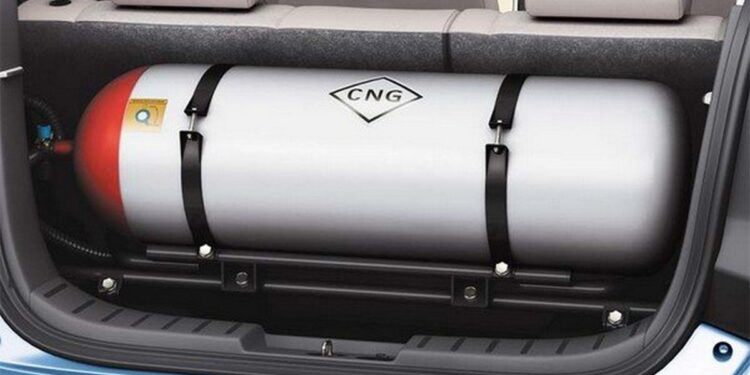Some experts in the Oil and Gas industry have expressed concern that the cost of converting vehicles to use Compressed Natural Gas (CNG) may not be affordable for many Nigerians.
The experts, who spoke in separate media interviews said the government may have to subsidize the cost to encourage Nigerians to embrace the CNG as an alternative to petrol. While commending the government for the initiative as part of measures to cushion the effect of the fuel subsidy removal, they also raised concerns over the capacity of those that will be doing the vehicle conversion.
Based on this concern, the Branch National Chairman of Liquefied Petroleum Gas Retailers (LPGAR), Mr. Ayobami Olarinoye, advised the government to carefully undertake the process and ensure that those that would be entrusted with the conversion kits get the best ones, necessary training, and equipment to guide against situations where citizens would be short-changed.
The gas retailer boss said that all required standards must be met. He urged that Nigerians should not be exposed to another round of harrowing experiences in the process.
Describing the CNG initiative as a welcome development from the Federal Government, Olarinoye said:
- “CNG will augment the downstream sector regarding cushioning and serving as an alternative to petrol. Available safety measures and standards, peculiar to the oil and gas industry, should be strengthened, while additional ones generated to cushion the negative effect of CNG. More public enlightenment should be put in place on the subject matter.”
Alternative to petrol
Also speaking, the President of the Independent Petroleum Marketers Association of Nigeria (IPMAN), Alhaji Debo Ahmed, said that petrol, which hitherto has been a monopolistic product without alternative, is going to have an alternative. He added that this would bring about competition which remains the bedrock of deregulation and market forces.
- “It is a good initiative by President Tinubu’s administration. It is an initiative that is long be expected. CNG is a different product of its own from petrol but they perform the same function. It has now become a matter of choice.
- “The price of petrol hinges on the movement of the foreign exchange market because it is imported and has nothing to do with CNG price. The competition that will exist between petrol and CNG will be preferential competition and pricing advantage.
- “If the government follows the National Gas Expansion Programme (NGEP) initiatives on the cost of conversion, this is going to be paid on an installment basis as pay-as-you-purchase CNG, anywhere at any time. The more interesting part is that you can switch to petrol if you cannot get CNG. It is a dual-purpose conversion at one’s convenience,” he said.
Ahmed advised the government to allay the fears of Nigerians on the use of CNG and make the conversion cost affordable while guaranteeing the availability of the products.
President Bola Tinubu on Aug. 18 approved the establishment of the Presidential Compressed Natural Gas Initiative (PCNGI) to facilitate nationwide adoption of gas-powered vehicles.
The initiative was in furtherance of his commitment to easing the impact of fuel subsidy removal on Nigerians by reducing energy costs.














Converting kit is expensive for Nigerians but money lavished on all sorts prodigal item over the years by Nigerians was not. I knew of gas use by car in 1973 after the Arab Israeli war. How many years ago is that? Meanwhile, Nigeria has been flaring gas in its normal prodigal way since oil was discovered in Oloibiri in 1956, I guess. The conversion kits have in the market for some time and there are competent companies who can deliver it. Somebody is talking of subsidy again for gas as if the Nigerian is cursed not to forget that nightmare word, subsidy
Instead of expending limited resources on conversion kits, it would be logical to utilize natural gas to enhance electricity generation, particularly for the benefit of commercial and industrial entities that contribute to job creation.
By generating well-paying jobs within the manufacturing sector, individuals would have the means to afford gasoline. Pursuing gas as a remedy for transportation expenses strikes me as nothing more than an illusion that doesn’t address the fundamental economic problems within Nigeria which is the lack of productivity in large parts of the economy.
Subsidy is gone, divert the Cash to power.
The issue has not been removal of subsidy for me, it is how the save money is being spent. As sad as using over a billion naira on housing cost of the ministers when an average household in Nigeria does not boast of 200,000 income in a month.
It would have been nice to give the price of conversion in the article, for proper perspective.
The fact that our leaders lack proper planning is still alarming. Subsidy removal is good, but the fact that everyone have to face numerous hardship all at once with just having few grains of rice as palliative is demeaning. And all these policymakers are not sensible enough to formulate reasonable palliative measures that will douse the pressure on basic but expensive amenities. It is really so appalling. People who are laid off are given grains of rice as palliative and politicians who have remained in power for countless years and are still in power are given millions as recess palliatives. So where is the subsidy really going…?